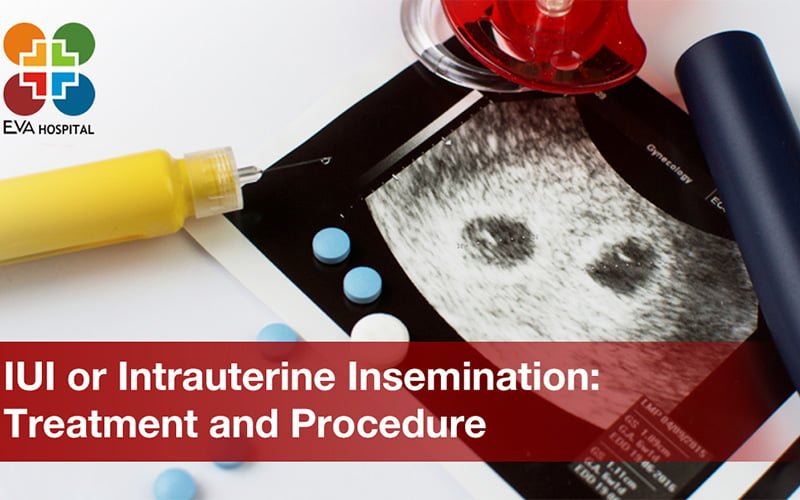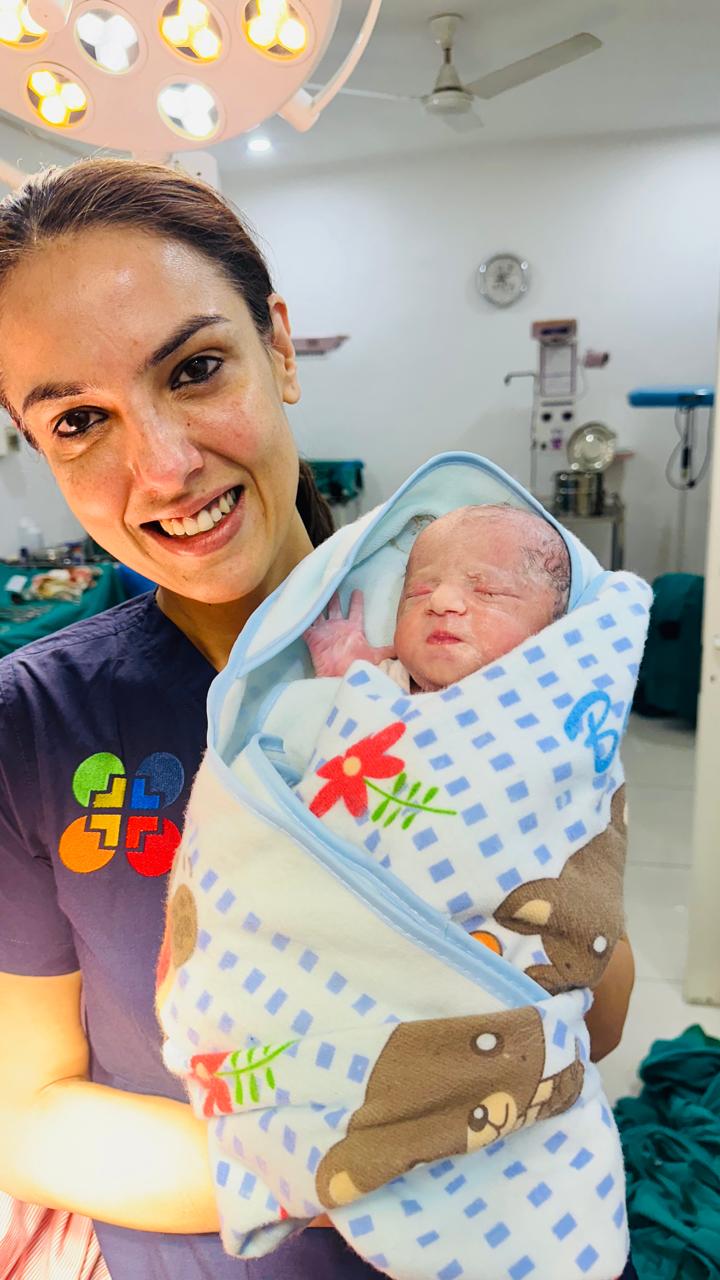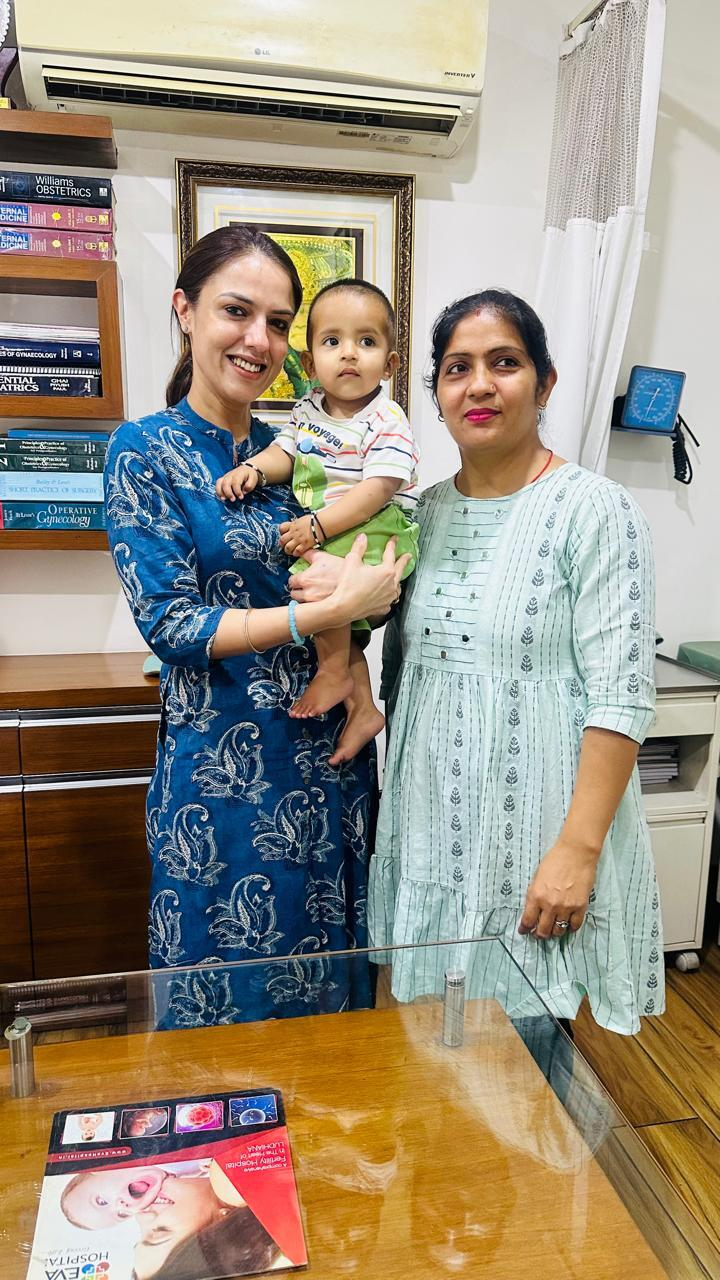[vc_row el_class=”cstm_container”][vc_column][vc_column_text]
What is IUI?
Intrauterine Insemination or IUI is one of the many types of artificial insemination, used as an infertility treatment. During an IUI procedure, high-quality sperm that have been collected, washed, and concentrated are placed directly inside a woman’s uterus during her ovulation. The planting of sperm is done with the help of a small catheter.
How does IUI treatment work?
IUI treatment is meant to improve a woman’s chances of getting pregnant by providing healthy sperms easier access to the fallopian tube, at a time when the woman is most fertile.
As opposed to a natural conception, IUI treatment cuts down the time and distance a healthy sperm has to cover to reach the woman’s fallopian tubes. In the natural course of action, the sperm has to travel through a woman’s vagina, then cervix, then uterus and then to the fallopian tubes, where it meets the eggs released from a woman’s ovary and fertilization takes place.
IUI treatment: When is it needed?
Comparatively much less invasive and a lot more affordable, IUI treatment is used as the first choice by a specialist when treating infertility. IUI treatment can be recommended by a specialist for couples who have not been able to achieve pregnancy because of the following reasons:
Male factor infertility & sperm impairments: IUI is used to help a woman get pregnant who has failed to conceive because of an issue with her male partner’s sperm. These issues may include below-average sperm concentration, weak sperm motility or abnormalities in sperm size and shape.
IUI treatment is also applied in cases where the male partner has ejaculation or erectile dysfunction.
Donor sperm: IUI procedure is used for women who need to use donor sperm to get pregnant.
Cervical factor infertility: A woman’s cervix, seated between her vagina and uterus, produces mucus during ovulation which makes it convenient for sperm to travel from the vagina to the fallopian tubes. Thickness in cervical mucus may hamper the easy movement of the sperm. An IUI treatment is ideal in such cases since the sperm is directly planted into the uterus.
Endometriosis-related infertility: Among women suffering from endometriosis —- a disorder that obstructs the fallopian tube and keeps the egg and sperm from the meeting —IUI treatment is used, along with other medication, to achieve pregnancy.
Problems with ovulation: IUI treatment is also known to be effective for women suffering from ovulatory factor infertility.
Semen allergy: While such instances are a rarity, some women are allergic to the proteins present in the sperm. The condition can cause redness, swelling, and a burning sensation in the vagina. IUI treatment is suitable in such cases since the allergy-causing proteins are washed away during the procedure.
Unexplained infertility: IUI is known to work best for couples with unexplained infertility.
IUI Procedure
Step 1: Since the sperm has to be planted in your uterus when the woman is ovulating, your doctor would ascertain your ovulation window. Typically, ovulation occurs 10 to 16 days after the first day of your period. IUI procedure is typically done a day or two after detecting ovulation.
Step 2: Keeping in view of your ovulation window, the semen sample is provided. In the case of donor sperm, frozen sperm is thawed and prepared.
Step 3: Through a sperm washing procedure, a concentrated amount of healthy sperm is separated from poor-quality sperm and other elements present in the semen.
Step 4: Intrauterine insemination is done by a specialist. The procedure will last between 15 to 20 minutes.
Step 5: Minutes after the procedure, you are free to get back to your regular routine.
Step 6: A home pregnancy test can be done two weeks after the IUI procedure to ascertain pregnancy.
Step 7: Two weeks after the home test, a blood test is carried out by your doctor to be entirely certain of the test result.
IUI: Risks
- Infection
- Spotting
- Ovarian hyperstimulation syndrome
- Multiple births
- Cramping
FAQs
Is IUI treatment painful?
One of the least invasive forms of artificial insemination, IUI procedure is known to cause only a slight pinching sensation and some cramping when the catheter is passed through the cervix. Some women may also experience spotting after the procedure.
Is IUI successful on the first try?
An IUI treatment may or may not be successful in the first attempt.
Who needs IUI treatment?
IUI is recommended for couples with the following medical conditions/ requirements:
- Male factor infertility
- Ejaculation dysfunction
- Erectile dysfunction
- Endometriosis-related infertility
- Cervical factor infertility
- Ovulatory factor infertility
- Semen allergy
- Donor sperm
[/vc_column_text][/vc_column][/vc_row]


















